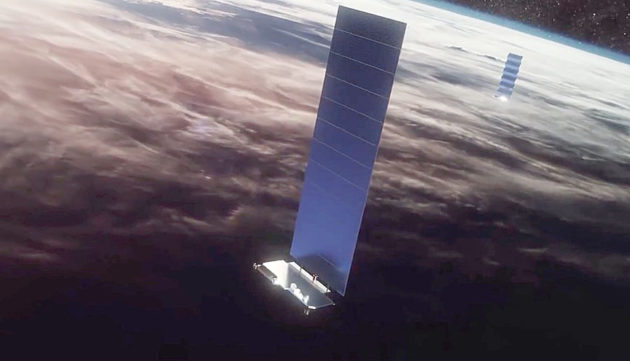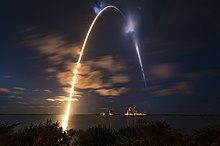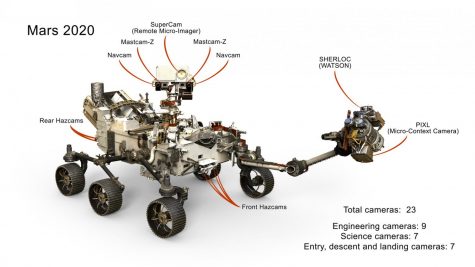Conflict in the Cosmos? Concerns Over the New Starlink Satellites
In the 21st century, technological advancements have been at the forefront of human progress, but more often than not, they come with many sacrifices as well.
Have you ever looked at the night sky and seen a blinking light, assuming it to be a star, only for the little glimmer to be the lights of a plane or helicopter? Soon, we might find ourselves in a reality where the entire night sky is filled with these fake stars. Why is this happening?
In January 2015, SpaceX announced the Starlink program, an initiative to provide global internet coverage to every single human with a compatible device. The project originally planned to produce 1,600 satellites but has since expanded to 12,000 satellites after the approval of the Federal Communications Commission, an independent agency that regulates communications in the US. Now, SpaceX is calling to expand the number of satellites again to 30,000. The positives from this program are boundless and self-evident, but will these positives manage to outweigh the potential negatives?
Astronomers are greatly critical of the injection of these new satellites into the orbital environment for various reasons. With the addition of the satellites, any ground-based viewings of celestial bodies become a near-impossible task. According to Bob Unger, an astronomer at the Vanderbilt Museum, “It’s a matter of personal preference. If you’re an astrophotographer it’s a complete nightmare.”
There’s also rising criticism towards corporate ethics involving Starlink. Many believe that a single company shouldn’t have the ability to independently change the entire night sky and would consequently lead to economic and political conflict. “If a government did something similar, there would be a much greater controversy,” says Neil Palmieri, a junior at Walt Whitman Highschool. “We don’t hold corporations to the same standards as nations.”
A majority of people would be glad to have working internet in any part of the world, but will it be worth forever changing the night sky?
Sources:











